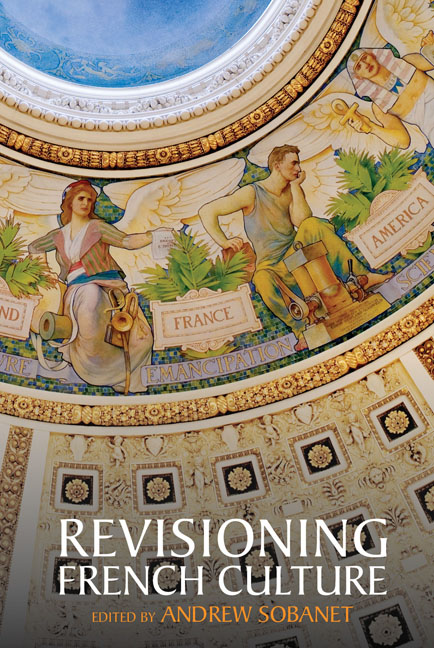Book contents
- Frontmatter
- Contents
- Introduction
- I France in Perspective: The Hexagon, Francophonie, Europe
- II Visions of the World Wars, or L’Histoire avec sa grande hache
- III Refractions and Reflections
- IV French Literature, Revisioned
- V The Subject in Focus
- VI Philosophical Lenses
- VII Coda
- Contributors
- Acknowledgments
- Index
19 - What Happens When I Read
- Frontmatter
- Contents
- Introduction
- I France in Perspective: The Hexagon, Francophonie, Europe
- II Visions of the World Wars, or L’Histoire avec sa grande hache
- III Refractions and Reflections
- IV French Literature, Revisioned
- V The Subject in Focus
- VI Philosophical Lenses
- VII Coda
- Contributors
- Acknowledgments
- Index
Summary
I am much honored to be asked to contribute to this volume celebrating Lawrence Kritzman. I have been greatly pleased and flattered by Professor Kritzman's various kindnesses to me over the years from his position on the Dartmouth faculty. I immensely admire both his scholarship and the distinguished work he has done over many years in fostering our understanding of French culture, literature, and theory (for the latter: Foucault, Derrida, many others), as well as understanding the European Renaissance generally, especially Montaigne. Also of great importance has been Professor Kritzman's investigation of ‘the Jewish Question in France.’ He has received many honors, visiting appointments, and awards, including even being named in 2012 to the French Légion d’honneur, a very high distinction.
I am not qualified to write an essay in Kritzman's special fields of French Renaissance literature and culture, though we overlap somewhat in that we both have written about recent French literary theory. I propose, however, to submit an essay drawn from my own current work. That work is of course deeply influenced by French literary theory, for example by what Roland Barthes says about what occurs in reading a Balzac novel, S/Z, or by Jacques Derrida's powerful writings on what might be called the phenomenology of reading. Professor Kritzman has of course written brilliantly on both Derrida and Barthes.
My writing at this point focuses on what happens to my mind, body, and feelings when I read a poem or novel or try to make sense, word after word and sentence by sentence, of a philosophical or theoretical text. I hold that what happens in reading is surprisingly complex and strange. Even in reading a philosophical or theoretical text, an internal theater opens in my mind that has spatial, aural, kinetic, and even tactile or olfactory dimensions. ‘Kinesis’ means, according to the Oxford English Dictionary, ‘[a]n undirected movement of an organism that occurs in response to a particular kind of stimulus.’ Reading a poem or a novel makes kinesis happen in my body. What happens when I read is often contradictory or incoherent, however logical, coherent, consistent, and paraphrasable the conceptual or referential meaning of the text may appear to be.
- Type
- Chapter
- Information
- Revisioning French Culture , pp. 272 - 288Publisher: Liverpool University PressPrint publication year: 2019

